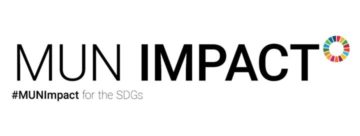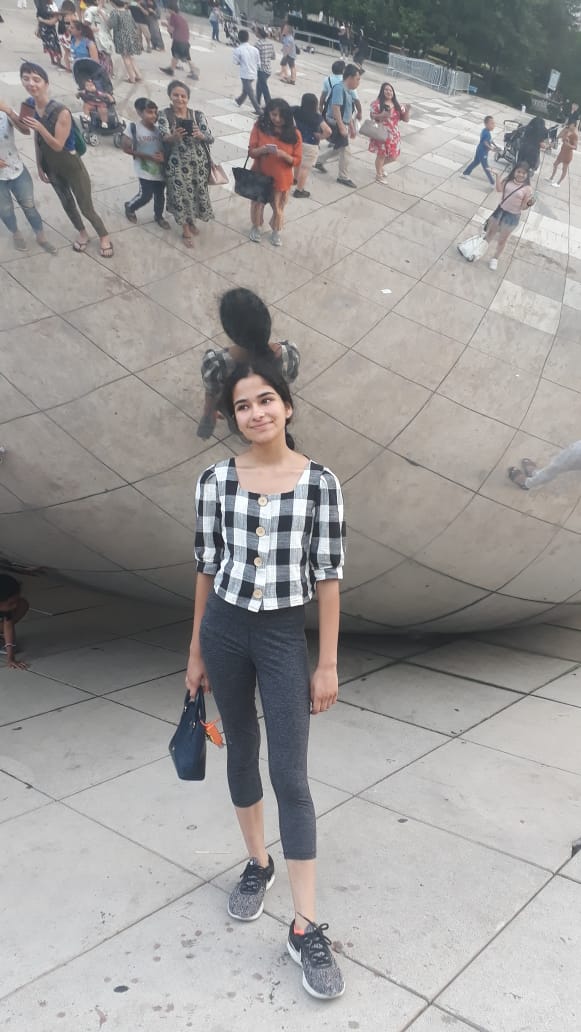By Arushi Katyal
_
When people ask me to introduce myself, I usually respond with a generic description of a 15 year old girl who goes to John Burroughs School in St. Louis, Missouri. Quarantine has taught me that I am bad at baking, and an even worse hairdresser. Sure I have my own talents and hobbies, but deep down, I feel like I don’t have much to contribute to others around me.
This is why I joined Model United Nations — because I knew my experiences would matter more if I was surrounded by diverse people with unique backgrounds. I was right. During my very first MUN@Home meeting, everyone began introducing themselves and where they were from. We sparked a dialogue about various issues in our countries, and I was amazed at everyone’s distinctive experiences. I soon understood that there wasn’t a single “generic” person at MUN@Home.
In many cases, we’ve all experienced different and sometimes opposite facets of the same thing. For example, in my school, no one questions the value of feminism. Girls are encouraged to express themselves in any way that they want. And yet, in this MUN meeting there were girls who were struggling to convince their families of the importance of feminism, being labeled “anti-men.” In the second session, there were students from Nigeria speaking about the direct impact of poaching, women’s rights, and poverty on their day to day lives. You might think that you already understand these topics because you’ve digested facts about the amount of illegal poaching, or the wage differences between women and men; I used to think I knew a lot too. But what MUN@Home made me understand is that these issues cannot be truly represented by numbers, facts and statistics. When I listened to people’s struggles it felt so human to me. I could see the faces and experiences behind the injustices we’ve all heard about.
The fact of the matter is that so many issues don’t truly affect us until we see those hurt by them. When I heard the ambassador speaking about women’s rights in India, or the Nigerian children speaking about their situation, I was moved and felt more responsible for finding a solution. Luckily, my mentors had me covered. Each of us were assigned a cohort with mentors who would guide us through the process of making a resolution. They were inspiring and encouraging, despite me having asked some dumb questions in the beginning (and in the middle. And even towards the end). They were always supportive. They taught us effective research techniques, how to properly phrase clauses, how to create viable solutions and understand our country enough to incorporate its strengths into the resolution.
The entire process of Model United Nations is refreshingly optimistic. Which surprises me, because given the current state of the world, the 100+ of us at the last Zoom meeting had much to complain about. Instead, everyone had a drive to distance themselves from this rhetoric and focus on ways they could personally make a difference. I was impressed by the specific, nuanced questions that were asked about ways to support women’s rights or stop poaching. I could tell that whoever was asking them truly wanted to make a difference in their community. If I had to choose a favorite part of MUN, this drive and attitude would be it. Especially during these uncertain times, it feels like a breath of fresh air to be around people who want to find a solution to the bad news that has piled up around us.
I think that a lot of our solutions are viable, and they give me insights on how I could help the people around me. It makes me feel less overwhelmed, because my generation has been told that it is our responsibility to stop Climate Change, malnourishment, disease and other issues. People tell us that we are all in the same boat and we must work together as a world to solve problems. I agree, and I think that this is a skill we should practice early on because our future depends on it. If we don’t find solutions together, we will feel distanced from the world’s problems and lose motivation.
So, I encourage you to join us; familiarize yourself with the people in your boat.

